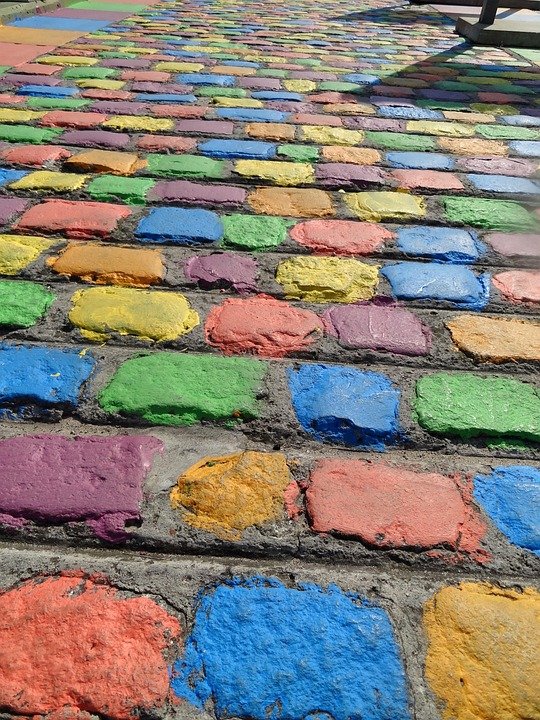Wondering when to go to Buenos Aires without running into huge crowds or bad weather? It's a great question, and the timing really depends on a mix of factors like weather, budget, local events, and what you want to experience. So let's dive into the details to help you decide the best time to visit Buenos Aires for your ideal trip!
Overview of Buenos Aires’s Climate
Buenos Aires enjoys a temperate climate with distinct seasons, making it relatively easy to choose a time of year to explore its vibrant streets. The weather in Buenos Aires can be categorized into dry and wet seasons, with warm summers and mild winters.
-
Summer (December to February): Temperatures often reach highs of around 86°F (30°C) and can even dip into the 60s°F (15°C) at night. Though it's sunny, summer can also be humid, especially in January.
-
Fall (March to May): This is a transitional period where temperatures range from the low 50s°F (10°C) to high 70s°F (25°C). The humidity decreases, making it a pleasant time for outdoor activities.
-
Winter (June to August): Winters are mild, with average daytime temperatures around 58°F (14°C), and nights can get chilly, dropping to around 40°F (4°C). Rain is minimal during this time.
- Spring (September to November): Like fall, spring is lovely with temperatures rising back into the 60s°F and 70s°F, showcasing blooming flowers—perfect for strolling in parks.
Key Takeaways: The best weather in Buenos Aires typically occurs in the transitional months of spring and fall, so if you prefer moderate temperatures without the extreme heat or cold, plan your trip around these seasons.
Month-by-Month Breakdown
January (Summer)
- Weather: Hot and humid, average highs around 86°F (30°C).
- Events: New Year celebrations continue, and many locals are on vacation.
- Pros: Beaches around Buenos Aires are lively and fun.
- Cons: High humidity can be uncomfortable for some.
- Best For: Beach lovers and those who enjoy a festive summer vibe.
February (Summer)
- Weather: Similar to January but slightly cooler.
- Events: Carnaval festivities bring color and excitement.
- Pros: The city feels alive with street parties.
- Cons: Still quite humid, and many locals may still be away.
- Best For: Festival-goers and those looking for vibrant street life.
March (Fall)
- Weather: Mild, averaging around 75°F (24°C) during the day.
- Events: Buenos Aires International Festival of Independent Cinema (BAFICI) occurs.
- Pros: Perfect weather and fewer crowds.
- Cons: Some events wrap up after summer.
- Best For: Film lovers and those who seek a more relaxed atmosphere.
April (Fall)
- Weather: Comfortable temperatures averaging 65°F (18°C).
- Events: Celebrate Easter and local cultural events.
- Pros: Beautiful fall colors enhance scenic parks.
- Cons: Rain can increase, but it's usually manageable.
- Best For: Nature lovers enjoying city parks or couples on romantic strolls.
May (Fall)
- Weather: Slightly cooler, averaging around 60°F (16°C).
- Events: International Book Fair takes place.
- Pros: Culture is at its peak; great for book enthusiasts.
- Cons: Daylight hours lessen as winter approaches.
- Best For: Literary fans and those seeking intimate cultural experiences.
June (Winter)
- Weather: Mild, with average lows of about 40°F (4°C).
- Events: Winter solstice celebrations.
- Pros: Fewer tourists lead to better deals on hotels.
- Cons: Chilly nights, but still plenty to see.
- Best For: Budget travelers and those who prefer a quieter experience.
July (Winter)
- Weather: Cool, with highs around 57°F (14°C).
- Events: Argentine Independence Day festivities.
- Pros: Great for photography with clear skies.
- Cons: Cold for those used to warmer climates.
- Best For: Photographers and history lovers.
August (Winter)
- Weather: Slightly warmer, gradually warming up.
- Events: Winter fashion shows and concerts.
- Pros: Good time for shopping with sales.
- Cons: Still can be quite cold for some.
- Best For: Fashionistas and avid shoppers.
September (Spring)
- Weather: Warming up nicely, averaging 65°F (18°C).
- Events: Spring festivals and cultural events.
- Pros: Perfect weather for walking tours.
- Cons: Still some rainy days.
- Best For: Outdoor adventurers and cultural enthusiasts.
October (Spring)
- Weather: Beautiful, with averages ranging from 60°F to 70°F (16°C – 21°C).
- Events: The annual Tango Festival and World Cup events are big draws.
- Pros: Fantastic time for tango lovers.
- Cons: Watch for larger crowds as the tourist season sets in.
- Best For: Tango aficionados and cultural celebrators.
November (Spring)
- Weather: Warm, ranging from mid-60s°F to high 70s°F (20°C – 27°C).
- Events: The cultural calendar is busy, leading up to summer.
- Pros: Blossoming flowers and nice weather.
- Cons: Rain becomes possible.
- Best For: Photographers and those who love outdoor dining.
Tips Based on Travel Style
-
For Budget Travel: Try traveling during July and August, which are off-peak months. Many hotels and attractions offer discounts during winter, making it a more affordable experience.
-
For Avoiding Crowds: March and April are ideal. The weather is perfect for sightseeing, but the tourist numbers are lower compared to the peak summer months of December through February.
-
For Outdoor Activities or Cultural Events: The ideal time to visit Buenos Aires is during September and October when the parks are in bloom and there are numerous outdoor festivals.
- For Romantic or Solo Trips: The fall months of April and May are lovely for a romantic vibe with fewer people, allowing you to enjoy intimate moments without the hustle.
It really depends on what kind of experience you're looking for. Some travelers love January because of the lively atmosphere, while others aim for the quieter vibes of June or July. Buenos Aires has its charm at every turn, regardless of the time of year!
FAQs
Is January a good time to visit Buenos Aires?
Yes, if you enjoy warm weather and festive atmospheres, but be ready for the heat and humidity.
When is the rainy season in Buenos Aires?
Rainy weather can occur from November to March, with the greatest rainfall typically in March.
What's the cheapest time to visit Buenos Aires?
Typically, July and August offer the lowest hotel rates and fewer tourists.
What's the peak season in Buenos Aires?
The peak season usually runs from December to February, coinciding with summer and school vacations.
So, which month are you thinking of for your adventure in Buenos Aires? Whichever you choose, you're in for a cultural treat!








